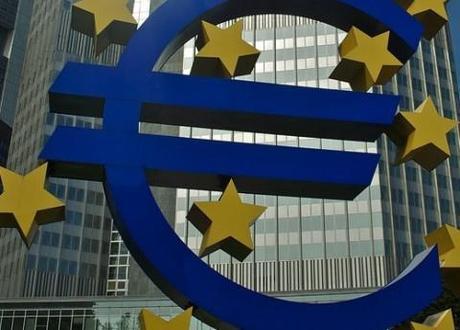
The European Central Bank - what can it do?
While Italian Prime Minister Silvio Berlusconi’s announced departure was welcome news to investors and economists, uncertainty over Italy’s political future has sent its borrowing costs skyrocketing – and fueled worries about an eventual break up of the euro.
Asian shares dropped 3 percent, with similar declines in markets across the globe, on Wednesday and Thursday, as Italy’s borrowing costs rose 7 percent, nearing unsustainable levels, and it became increasingly clear that a bailout of the eurozone’s third largest economy was unlikely amid “buck-passing among European leaders and institutions”, Reuters reported. Though markets initially reacted favourably to Berlusconi’s announcement that he would resign after Parliament passes an European Union-mandated austerity package, on the hopes that whoever takes over his government will do a better job corralling the country’s debt than he did, fear, stoked by uncertainty as to how exactly Italy would proceed, soon spread.
Italy now is torn between holding early elections, Berlusconi’s suggestion, or trying to form a national unity government, possibly lead by former European Commissioner Mario Monti; either way, no one knows whether Italy can achieve enough political cohesion to pass the much needed austerity package. At the same time, International Monetary Fund head Christine Lagarde warned that the world faces a “lost decade” of economic stagnation as political upheaval in Italy lingers and Europe continues to dither in dealing with the debt crisis.
Italy’s debt stands at 1.9 trillion euros ($2.6 trillion), exceeding that of Greece, Spain, Portugal and Ireland combined. It’s the third largest economy in the eurozone and the eighth largest in the world and if it falls victim to a sovereign debt crisis, the world is in big trouble.
Two-speeds? Or two Europes? French President Nicolas Sarkozy, one half of the Franco-German power couple at the head of the EU’s leadership, suggested that Europe could be headed for a “two-speed” system: The 17-member euro core deepening their integration, with an expanding outer circle of non-euro nations. Sarkozy’s comments, made during a debate with students at the University of Strasbourg, reportedly signal that some countries could be leaving the monetary union. That’s worrying, claimed The Economist: “[H]e wants to create an exclusivist, protectionist euro zone that seeks to detach itself from the rest of the European Union.” Saving the euro will require significant reform of the EU’s treaties – “But done wrongly, as one fears Mr Sarkozy would have it, this will be a recipe for breaking up Europe. Not two-speed Europe but two separate Europes.”
Ten reasons to fear Italy’s economic implosion, courtesy of The Guardian.
Barroso strikes back; Merkel wants more integration. But European Commission President Jose Manuel Barroso, seemingly in response to Sarkozy’s two-speed concept, warned against the fragmentation of the eurozone and called all European Union nations to become a part of the monetary union. Said Barroso, during his “State of Europe” speech, “The idea that we have two unions in Europe means disunion.” German Chancellor Angela Merkel, the “Merk” in the “Merkozy” couple, also called on European leaders to accelerate plans for more integration, claiming, “Because the world is changing so much, we must be prepared to answer the challenges. That will mean more Europe, not less Europe.”
Will the EU break up? It’s long been a favourite theme of commentators, but the potential break up of the currency union is reportedly being considered. The Guardian reported that panic-stricken EU leaders are discussing contingency plans in the event of a eurozone break-up.
Risk to US? The US market is already suffering from Italy’s uncertainty. Kelly Evans, writing at The Wall Street Journal, noted that the ripples spreading from Italy’s crisis throughout the European banking system may make financing global trade more expensive, adding that such financing could, in a worst case scenario, freeze altogether. “The impact would be felt in activity far beyond Europe’s shores,” she wrote. And now, “a swift, orderly fix to Europe’s troubles now seems unlikely.The same could be said for hopes the U.S. can dodge the fallout.”
Bye-bye, Berlusconi. With Berlusconi on his way out, several news outlets have turned to the predictable eulogizing of his political career. Said David Elliot at The Belfast Telegraph, “Silvio Berlusconi has been nothing if not entertaining at the helm of the eurozone’s third biggest economy…. To Silvio, we say goodbye and thanks for all the headlines. You couldn’t make him up.” Alexander Lee, writing at The Wall Street Journal, noted that while his political opponents are cheering,“life after Mr. Berlusconi may not be quite as rosy as they expect” – political turbulence will now only add to the economic mess. Nancy Dell’Ollo, a former campaigner for the PM, claimed in an op-ed for The Times that though it was time for Berlusconi to go, Italians will miss him – “He was a breath of fresh air.” And Tobias Jones of The Daily Mail, a reported who Berlusconi personally denounced on television, cheered the fall of “Europe’s sleaziest and most sinister leader”, the “Japanese knotweed of Italian politics” who bought election after election.
“Mr Berlusconi was like John F. Kennedy in America and Tony Blair in Britain: a great communicator who really understood the power of television.” Nancy Dell’Ollo, The Times.

